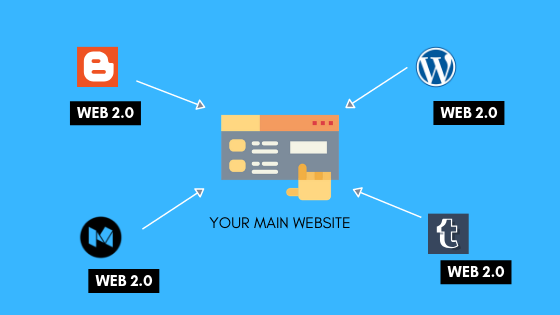In the ever-evolving landscape of digital marketing, the importance of building backlinks remains a crucial strategy for improving website authority, search engine rankings, and overall online visibility. Among the various methods of link building, contextual links derived from Web 2.0 content have gained significant traction. This article explores what contextual links are, the characteristics of Web 2.0 platforms, and effective strategies to leverage them for link building.
Understanding Contextual Links
Contextual links are hyperlinks embedded within the content of a web page that point to another website or webpage. Unlike standard links placed in sidebars or footers, contextual links are inherently more valuable because they are integrated into the main body of content. This means they are more likely to be clicked by visitors who find them relevant to their reading material, making them an essential component of a successful SEO strategy.
Characteristics of Web 2.0 Platforms
Web 2.0 refers to a second generation of web development and design that facilitates communication, collaboration, and user-generated content. Popular platforms associated with this era include:
- Blogs (e.g., WordPress, Blogger)
- Social Media Sites (e.g., Facebook, Twitter, LinkedIn)
- Content Sharing Platforms (e.g., Medium, Wix, Tumblr)
- Discussion Forums (e.g., Reddit, Quora)
These platforms offer users the ability to create and share content while fostering community interactions. They are highly regarded by search engines, making them ideal for building contextual links.
The Importance of Contextual Links in SEO
-
Improved SEO Performance: Contextual links contribute to higher search engine rankings by injecting relevance into your link profile. Search engines like Google use the context of a link to determine the topic and authority of the linked page. The more contextually relevant a link, the greater the positive impact on your rankings.
-
Increased Referral Traffic: As contextual links are embedded within valuable content, they are more likely to be clicked on by users, driving targeted referral traffic back to your website.
-
Enhanced Brand Authority: High-quality contextual links from reputable Web 2.0 sources can help position your brand as an authority in its niche, increasing trust and recognition among your target audience.
- Natural Link Building: With the focus on quality rather than quantity, contextual links align with ethical SEO practices. They are perceived as more natural by search engines, reducing the risk of penalties that can accompany manipulative link-building strategies.
Strategies for Building Contextual Links Through Web 2.0 Content
1. Create High-Quality Content
Producing authoritative and engaging content is the cornerstone of attracting contextual links. Focus on:
- Informative Articles: Write comprehensive guides, how-tos, or tutorials that provide real value to readers.
- Case Studies: Share your success stories or unique research findings to establish credibility.
- Infographics and Visuals: Use visuals that simplify complex information, making it easier for others to share.
2. Leverage User-Generated Content
Encourage your audience to contribute content such as testimonials, reviews, or comments. Engage your users through contests or collaborations, and give credit back to those who contribute. This not only builds community but also generates organic backlinks to your site.
3. Utilize Social Media
Promote your Web 2.0 content on various social media platforms. Social media channels can drive significant visibility, and sharing high-quality posts can lead to organic backlinks from users who appreciate your content and want to share it within their networks.
4. Guest Posting
Identify reputable blogs within your industry that accept guest posts. Create valuable content with contextual backlinks to your website. Remember to pitch ideas that align with their audience’s interests, ensuring it is a win-win situation.
5. Engage in Online Communities
Participate in forums, social media groups, or platforms like Quora and Reddit. Providing insightful answers and linking back to relevant content on your website (where appropriate) can help establish your authority and generate contextual backlinks.
6. Monitor and Update Links
Use tools such as Google Analytics or Ahrefs to monitor your backlink profile. Identify which types of Web 2.0 content yield the most backlinks, and update or repurpose older content to improve its relevance and link potential.
7. Network With Influencers
Building relationships with influencers or thought leaders in your niche can open doors to backlink opportunities. Reach out for collaborations, interviews, or guest contributions to leverage their credibility and audience reach.
Conclusion
Building contextual links through Web 2.0 content is a powerful way to enhance your SEO strategy while establishing a robust online presence. By focusing on quality content, engagement, and community-building practices, you can cultivate a network of valuable backlinks that drive traffic, improve rankings, and bolster brand authority. As search engines continue to prioritize context and relevance, adopting a Web 2.0 approach will ensure your site remains highly visible in an increasingly competitive digital landscape.
Building Contextual Links Through Web 2.0 Content
Building Contextual Links Through Web 2.0 Content
- Weight Loss Supplements
- https://www.youtube.com/@
WeightLossSupplementsHQ - Health & Wellness
- https://www.youtube.com/@
Health-WellnessHQ - Weight Loss Diets
- https://www.youtube.com/@
WeightLossDietsHQ - Weight Loss Drinks
- https://www.youtube.com/@
WeightLossDrinksHQ - Nagano Tonic Reviews
- https://www.youtube.com/@
NaganoTonicReviewsHQ - Sumatra Slim Belly Tonic Reviews
- https://www.youtube.com/@
SumatraSlimBellyTonicReviewsHQ - Honest Product Reviews
- https://www.youtube.com/@
HonestProductReviewsHQ - Weight Loss & Fitness
- https://www.youtube.com/@
WeightLossFitnessHQ - Dietary Supplements
- https://www.youtube.com/@
DietarySupplementsHQ - Supplements for Weight Loss
- https://www.youtube.com/@
SupplementsforWeightLossHQ - Fat Burner
- https://www.youtube.com/@
FatBurnerHQ

